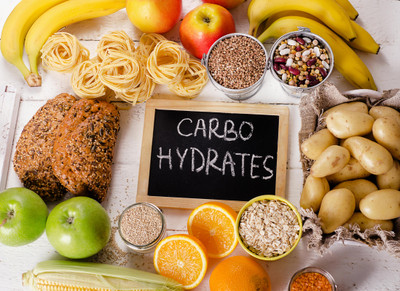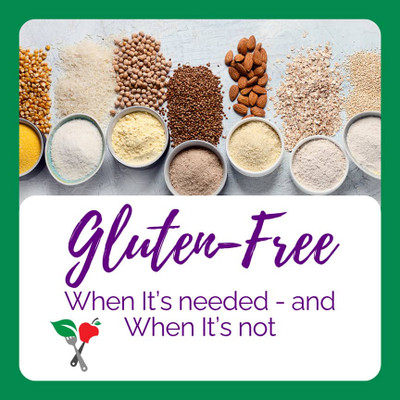Showing Carbs Some Love During American Heart Month
Carbohydrates deserve a lot of love as they are very important for our overall health and serve many beneficial roles in the body. Currently, carbs are getting demonized and many people are avoiding some of the most nutrient- and vitamin-packed foods because of misconceptions and fear. During American Heart Month when the focus is usually on sodium and dietary fat, let’s explore how superstar carbohydrates can positively influence heart health.
Fiber is the winning component to the important health benefits of carbohydrates. A fiber-rich eating plan – with high-fiber whole grains, vegetables, fruits, beans, peas, lentils, and nuts –has been linked to a lower risk for obesity, heart disease, and other chronic conditions.
Eating high-fiber carbohydrates has been proven to help you proven to help you reach and maintain a healthy weight, which is extremely important for heart health. Excess weight puts added strain on the heart, and raises cholesterol, blood pressure, and triglyceride levels. Fruits and vegetables are high in both fiber and water content, which helps fill up your stomach to help you feel more satisfied with a smaller amount of calories than higher calorie food with less filling power. Did you know that fiber is not digested? This means that it provides very few calories to the body. The combination of filling-power and high fiber content makes high-fiber carbs a great addition to help you get to a weight that is best for your heart.
Healthy carbs are also linked to improving cholesterol and blood pressure numbers. Research suggests that 12-33 grams of fiber per day from food may provide these benefits, it is hard to reach those numbers on a low carbohydrate diet. Beta-glucan, a type of soluble fiber found in barley, oats, and whole grains, has been shown to decrease the risk of heart disease by lowering LDL (“bad”) cholesterol. Two ways that soluble fiber improves heart health include binding cholesterol so it can’t be absorbed and also forming short-chain fatty acids which inhibits the production of cholesterol in the liver. Win-win for your ticker!!!
Chronic inflammation and high levels of C-reactive protein are both linked to increased risk of cardiovascular disease. Many healthy carbs such as colorful fruits and vegetables can protect against inflammation. These foods are high in natural antioxidants and polyphenols which are protective against inflammation. The Mediterranean diet has been promoted as an anti-inflammatory diet, which is high in fruits, vegetables, nuts, and whole grains.
Unrefined, whole carbohydrates are naturally low in sodium, saturated fat, and cholesterol. When you are planning meals and snacks, it’s important to choose carbs that are the least processed….so think a whole piece of fruit rather than juice and whole grains instead of unrefined grains. Choosing these types of carbohydrates instead of refined carbs, fried foods, and boxed and processed carbohydrate mixes (such as biscuit mix, seasoned rice, or stuffing mixes) will help eliminate a lot of sodium, fat, and cholesterol from your diet.
The American Heart Association recommends that at least half of the grains you eat are whole grains with an emphasis on whole-grain products, fruits, vegetables, beans, and peas. The goal is to get 14 grams of fiber for every 1,000 calories you consume. These recommendations come from years of research and have stood the test of time. Our meals at Seattle Sutton’s Healthy Eating meet these guidelines providing adequate fiber on each calorie level; whole, fresh fruits, vegetables, and whole grains; and low amounts of sodium, fat, and cholesterol.
So show your heart some love during American Heart Month by including healthful carbs and avoiding gimmicky programs that cut nutrient-dense foods from your diet.

Interested in eating healthy? Hungry for more?







 Weight Loss
Weight Loss Health & Wellness
Health & Wellness Diabetes
Diabetes Heart Health
Heart Health Motherhood & Family
Motherhood & Family Dietary Restriction
Dietary Restriction Other Health Conditions
Other Health Conditions About SSHE
About SSHE


